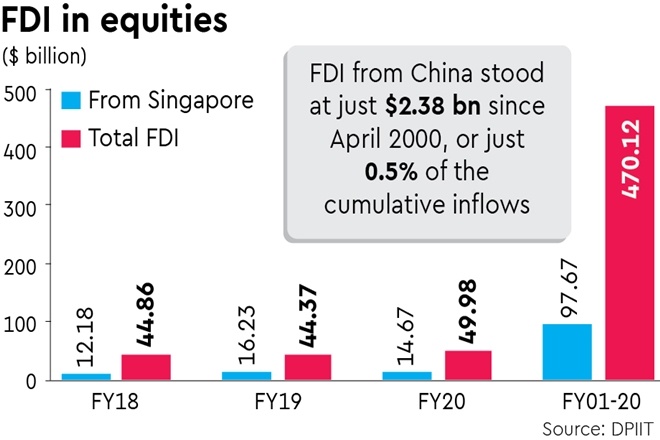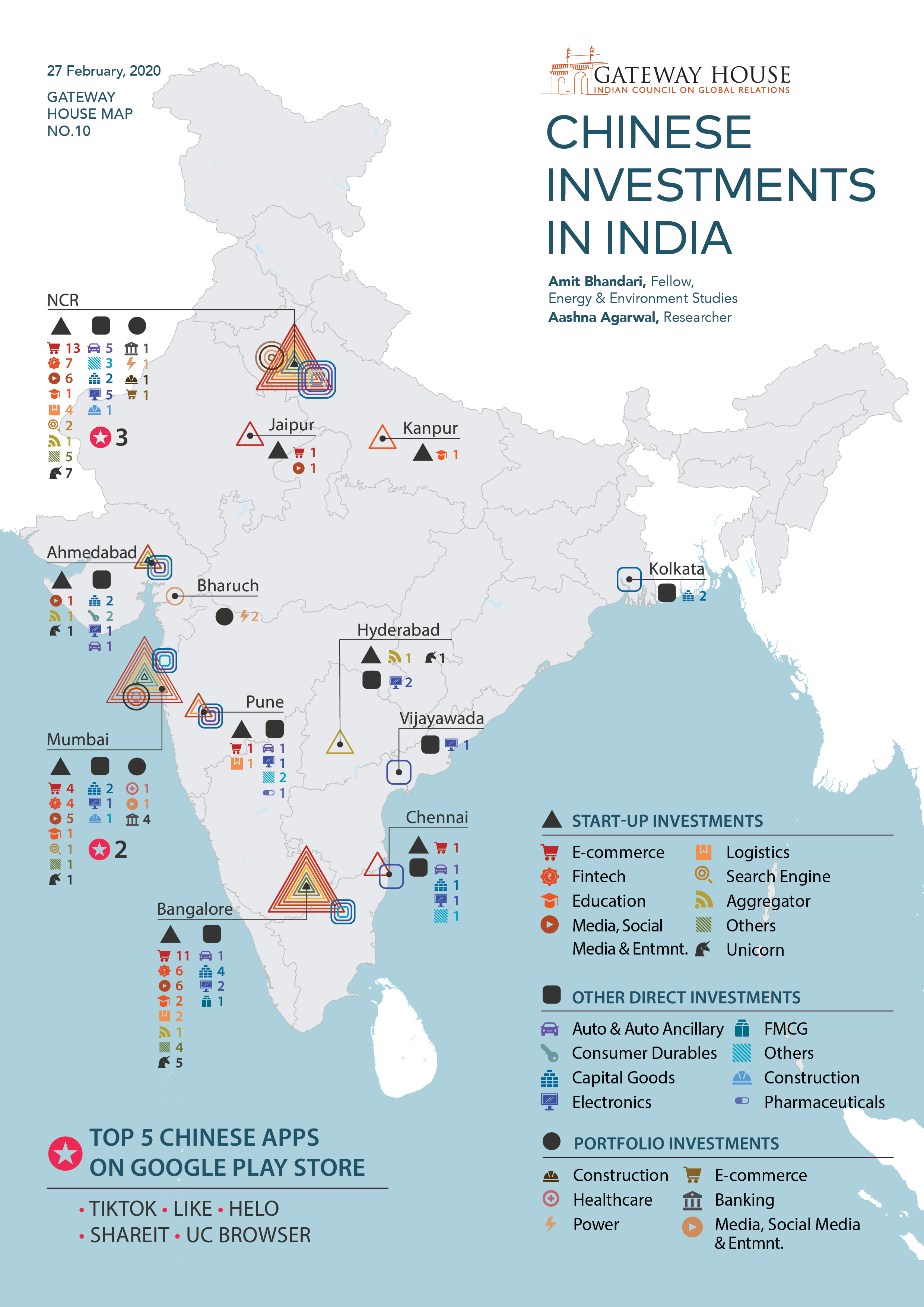The recent border conflict between India and China has led to the Indian Government to actively take massive steps to curb the neighbouring country’s presence on Indian soil. After deciding to ban 59 Chinese origin popular apps in India, the Government is now all set to tighten the scrutiny around FDIs aka Foreign Direct Investments which come from Singapore as well. But how exactly that’s connected with China? Continue to read!
Back in the month of April, the Indian Government mandated that an entity of a country that happens to share a land border with India can invest only after receiving government approval. While the government didn’t specifically name any country as such it was mostly focused on China. This meant every investment that would come through Chinese companies in India would immediately fall under the Indian Government’s scanner and be subjected to their approval for getting processed.
Now, to bypass these stringent changes in the Indian FDI policy, it is being apprehended by the Government that many of the cash-rich Chinese companies might make use of Singapore as a proxy to re-route their investments in Indian startups and companies.
In the FY19-20, Singapore, by accounting for almost 30% of investment inflows into equities, happened to replace Mauritius in order to become the largest source of FDI for India. Thus, it is quite understandable why Chinese companies would find it easy to use this country to slip their investments into India.

According to the sources who are aware of these proceedings in the Indian Government, a formal proposal for this hasn’t yet been floated yet but deliberations have started in many quarters in an informal fashion.
Additionally, the sources also mentioned that the Indian government would be mindful about stepping up the vigil in a manner which wouldn’t cause disruption in the flow of genuine FDI from Singapore. Apart from Singapore, FDI from Hong Kong could also come under scrutiny has it is often considered as a proxy for Beijing.
In the wake of the widespread COVID-19 pandemic, when the Indian Government happened to make its FDI policy stringent, it did so in order to curb ‘opportunistic takeovers/acquisitions’ of India companies who suffered a big hit in terms of valuation. When surfaced, this news didn’t sit well with China at all as one of the spokesperson of the Chinese Embassy in India, Ji Rong, immediately took to the press for slamming this decision.
She mentioned that this decision didn’t comply with the consensus of G20 leaders and trade ministers to “realize a free, fair, non-discriminatory, transparent, predictable and stable trade and investment environment, and to keep markets open.”
After that particular event, the recent misadventure at the Galwan Valley happened to instigate things for the worse when it comes to India and China’s relationship. Immediately, India was observed to create massive delays in processing imports from China by subjecting the shipments to a 100% physical check.
Now, it must be observed that the cumulative FDI inflows from China between April 2000 and March 2020 happened to remain extremely low and made up for only 0.5% ($2.3 billion). This was because of the low valuations of Indian firms, however, the investments were expected to surge in many sensitive sectors.
The cumulative investments of China in India, as of December 2019, exceeded $8 billion. Out of that only 30% were FDI. In fact, Hong Kong’s cumulative FDI inflows in India happened to be larger than that from Beijing as it stood at $4.4 billion.
According to a recent report that was published by Gateway House which is a foreign policy think tank based out of Mumbai, it was the venture investments in Indian startups that mainly helped China to make its way into the Indian market and penetrate its online ecosystem with Chinese-origin smartphones and applications. Currently, it has been estimated that close to $4 billion has been invested into Indian startup by Chinese tech investors.

Over the five years ending in March 2020, 18 out of 30 Indian unicorns attracted the investment mostly from China. Thus, even though the stringent changes in the FDI policy and now the proposed action regarding FDIs coming in from Singapore are a good starting point to curb the Chinese footprint in India, it is a still a long road ahead.
We will keep you posted on all future developments. Until then, stay tuned and don’t forget to express your views in the comment section below.

